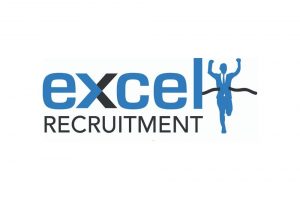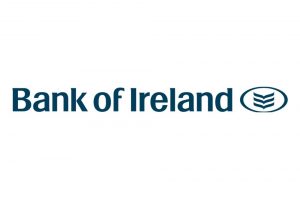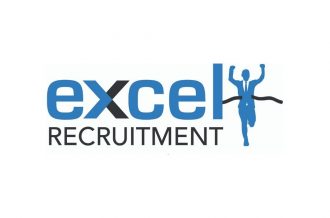
Are You Leaving Yourself Exposed To Unnecessary Penalties?
Because taxation is a largely overlook aspect of business there are a range of areas where business make costly error in their accounts and procedures. Here are some of the common tax mistakes that you need to look closer at for your business.
VAT
- VAT on all sales is charged at the correct rate to customers;
- Intrastat forms (from 2010) must be correctly completed in respect of goods and/or services supplied/received cross-border;
- AT is only reclaimed on ‘allowable’ items and based on proper VAT invoices from suppliers;
- All relevant VAT reliefs have been availed of and cash- flow saving opportunities have not been missed.
PAYE
- Staff are rewarded in a tax-efficient way maximising the use of any relevant allowances and reliefs available.
- All payroll calculations are correct including PRSI, Pension Deductions and Universal Social Charge (USC);
- There are no individuals being paid gross (on receipt of an invoice) where payroll should be operated;
- There are no benefits whatsoever being provided to staff/directors which should be subject to PAYE, but are not being included in the calculations;
- Amounts reimbursed to staff for expenses incurred (e.g. mileage etc) are correctly calculated in accordance with Revenue rules.
Tax legislation is constantly changing and this brings both risks and opportunities. Revenue is always under pressure to ensure that the correct amount of tax is collected each year and have significant powers to review a taxpayer’s affairs. Many businesses engage tax advisers regarding large one-off transactions as there are usually a number of tax implications associated with such transactions. However, risks also present themselves in every-day trading scenarios. This is where tax mistakes are made.
It is for this reason that Revenue audits quite often focus on fiduciary taxes, such as VAT and PAYE. These are the areas where even minor errors can build into substantial liabilities because mistakes made in VAT and PAYE tend to be repeated. VAT and personal tax rates are also much higher than corporate rates. For these reasons, an increasing number of businesses are reviewing these two particular tax areas more regularly.
Similarly with payroll calculations, the annual statutory audit will confirm that the amounts included in the monthly P30s and the annual P35 were paid to Revenue but there will be no check that these amounts are correct in the first place. For example, if employees have company cars, or the benefit of free gym membership, the amount of PAYE paid to Revenue may be significantly less that it should be but the annual audit will not detect such issues. The annual audit will also not identify individuals who are not on the payroll for which there may be payroll obligations.
What Penalties Are There For Non Compliance?
As with any fine or penalty for not being duly diligent the consequences for tax mistakes or ignorance can be very unpleasant! Below are some of the stings that can hit your pocket!
Failure to keep proper PAYE/VAT records €4,000
Failure to issue proper VAT invoices €4,000
Failure to complete VIES returns €4,000
Late submission of a VAT return €4,000
Violating PAYE regulations €4,000
There is no sense in paying fines for being ill prepared or not taking the appropriate advice and setting up a system to ensure compliance in the first place. You can surely put your hard earned money to far better uses! The lesson learned: Take A Proactive Approach To Minimise Taxes! Avoid tax mistakes that will cost you money!
What Happens if my Accounts are Audited?
If you have kept proper records then there isn’t anything to be afraid of. If however you have been sloppy in your financial administration then holes will appear. Annual statutory audits of accounts are designed to test the accuracy of the systems in place.
As an example if a transport company has 100 customers at rate of €10,000 each then a revenue audit should show €1m plus VAT lodged to the company bank account. The VAT control account should then show the correct amount being paid to revenue. What the audit will not should however is whether the right rate of VAT was charged in the first place. This is up to the company and will depend on the type of product they are selling, the location of the customer and other specific factors. A €1m business will have a significant amount of VAT flow per annum and that the day to day management of VAT is of major importance.
The penalties mentioned have now been substantially increased from previous thresholds and are in addition to the tax-geared penalties (max 100%) that apply to underpayments of tax. Even relatively minor mistakes can be very costly!
Common Mistakes Businesses Make In Relation To Revenue Audits
VAT cannot generally be reclaimed on the following:
-
Entertainment for clients, staff, personal use of assets;
-
Food and Drink (unless acquired as stock-in-trade for resale);
-
Accommodation (unless at a ‘qualifying’ event);
-
Passenger cars (20% of VAT is recoverable on purchase, lease or hire of certain new passenger vehicles used for business purposes);
-
Goods or expenses incurred that relate to a VAT exempt activity carried on by the business.
Valid invoices must be received in order to reclaim VAT. Invoices should always include:
-
Date of issue and a sequential number;
-
VAT number of supplier;
-
Details of goods/services supplied;
-
Full name and address of supplier and customer;
-
Invoice amount, VAT rate and VAT amount; and
-
VAT in question must be Irish VAT expressed in euros.
Errors in VAT frequently occur where properties are bought and sold or where leases are being granted or re-assigned. It is extremely important that VAT advice is taken prior to entering into any such transactions, particularly in light of the recent amendments in the legislation of this area.
When dealing with international transactions care must be taken when dealing with cross-border transactions. In many cases, VAT is not chargeable as the invoice will be zero-rated. However, this treatment generally requires that certain conditions are satisfied.
It is vital that invoices are not issued without VAT (in error) as the supplier remains liable for the VAT. It is equally important not to pay VAT to suppliers where it is not correctly chargeable as it will be very difficult to recover any such VAT.
Businesses who purchase services from abroad or purchase goods from suppliers in other EU Member States must account for Irish VAT on the value of services/goods through their Irish VAT return on a reverse charge basis. For businesses with an entitlement to 100% VAT recovery, they are entitled to a matching deduction for this VAT, resulting in no additional tax due to Revenue. For other businesses who are not entitled to reclaim all of the VAT incurred (including VAT-exempt businesses), the self-accounting for VAT represents a real VAT cost.
VAT Rates
Businesses need to ensure the correct rate of VAT is applied to all goods and services supplied. While the standard rate of VAT in Ireland is 21%, the reduced rates of 13.5%, 9% and 0% apply to many goods and services.
The penalties for a range of offences, including failing to submit VAT returns in a timely manner, have recently been substantially increased. It is therefore very important that businesses complete and submit returns on-time.
Some Examples of Why Proper Tax Strategies are Needed!
Case Study 1. VAT Case Study
Upon examination of a new clients activities we discovered a company with an unusually high amount of bad debts which was negatively impacting their business. The client was unaware that a VAT reclaim could be made in respect of most of these bad debts. We assisted the client to make a claim to Revenue and the client received a significant refund.
Case Study 2. Benefit In Kind – A company underwent a Revenue Audit and did not make a voluntary disclosure prior to commencement of the audit. During the course of the audit it was discovered that they were not operating benefit in kind in respect of three company cars. The Revenue imposed a 75% penalty on the basis that a higher duty of care arises on fiduciary taxes. By the time the case researched us the actions were irreversible in financial terms but we were able to negotiate non publication of the error and save negative PR for the new client.
Case Study 3. Benefit in Kind – A PAYE health check for a medium sized company. Upon investigation we discovered that they were failing to comply with the benefit in kind rules applying to company cars. The company made an unprompted voluntary disclosure of the issue to Revenue. The end result was a lower penalty being incurred than would otherwise have been payable. This saved the business many thousands of euros in fines and penalties.
Case Study 4. PAYE – By conducting a PAYE health check for a not-for-profit local organisation we discovered that they were not restricting mileage claims to: the shorter of their place of work to temporary place of work or their home to temporary place of work. We made an unprompted voluntary disclosure and avoided a large fine and negative press for the client.
Contact Avid Partners to help get the right financial procedures in place to save you money! Call us on 0818 303087 or email us at advice@avidpartners.ie.
cforms contact form by delicious:days
Scenarios:
-
 "A breath of fresh air. Your firm demonstrated enormous commercial understanding in turning around negotiations with a potential target vendor. I admire your style and ability to drive the deal forward. Many thanks."
"A breath of fresh air. Your firm demonstrated enormous commercial understanding in turning around negotiations with a potential target vendor. I admire your style and ability to drive the deal forward. Many thanks." -
 "I would like to say I'm very happy with your service, especially the audit team, your staff are always friendly, helpful and a pleasure to deal with."
"I would like to say I'm very happy with your service, especially the audit team, your staff are always friendly, helpful and a pleasure to deal with." -
 "Your business approach to clients is very impressive. I have always found that when explaining the types of service on offer, it is always concise and straight forward. The level of trust that clients place in your company and its staff speaks volumes."
"Your business approach to clients is very impressive. I have always found that when explaining the types of service on offer, it is always concise and straight forward. The level of trust that clients place in your company and its staff speaks volumes." -
 "I would like to take this opportunity to say how much we are impressed with your company's professionalism, it has been a pleasure working with you all and we look forward to working with you in the future."
"I would like to take this opportunity to say how much we are impressed with your company's professionalism, it has been a pleasure working with you all and we look forward to working with you in the future." -
 "Avid Partners - Accountants & Business Advisors are an excellent firm of accountants, their quality ethos is outstanding."
"Avid Partners - Accountants & Business Advisors are an excellent firm of accountants, their quality ethos is outstanding." -
 "I have dealt with Jamie O' Hanlon, of Avid Partners - Accountants & Business Advisors Chartered Certified Accountants, for a number of years as he is auditor to one of my clients. I have always found him to be professional and responsive in his approach."
"I have dealt with Jamie O' Hanlon, of Avid Partners - Accountants & Business Advisors Chartered Certified Accountants, for a number of years as he is auditor to one of my clients. I have always found him to be professional and responsive in his approach." -
 "Service is second to none; there is always someone at the end of the phone for any business advice. The staff are very easy to get along with, very approachable and know exactly what they are talking about"
"Service is second to none; there is always someone at the end of the phone for any business advice. The staff are very easy to get along with, very approachable and know exactly what they are talking about" -
 Having got to know the company through the BNI we decided it was time to change accountant. What impressed me about Avid Partners was their professionalism. Their attention to detail was second to none and as an added bonus they are a sounding board to all of my questions. Avid also potted some irregularities in my accounts from the previous few years and saved me substantial money on the years tax bill. Avid Partners deliver a first class service which is everything you could want from an accountant and I am happy to give this endorsement.
Having got to know the company through the BNI we decided it was time to change accountant. What impressed me about Avid Partners was their professionalism. Their attention to detail was second to none and as an added bonus they are a sounding board to all of my questions. Avid also potted some irregularities in my accounts from the previous few years and saved me substantial money on the years tax bill. Avid Partners deliver a first class service which is everything you could want from an accountant and I am happy to give this endorsement. -
 We at Fitzies Bar have worked with Avid Partners - Business & Financial Advisers for over five years. We find that the advice and support offered to us in addition to all of our book-keeping requirements to include payroll, VAT, etc. is invaluable and has helped to contribute to our continued growth especially in these challenging times. I would have no hesitation in recommending Avid Partners.
We at Fitzies Bar have worked with Avid Partners - Business & Financial Advisers for over five years. We find that the advice and support offered to us in addition to all of our book-keeping requirements to include payroll, VAT, etc. is invaluable and has helped to contribute to our continued growth especially in these challenging times. I would have no hesitation in recommending Avid Partners. -
 Jamie and his staff are a pleasure to work with. They respond promptly to any queries we have and are critical to our financial planning and the future needs of our business. I would highly recommend them to anyone interested in accounting services.
Jamie and his staff are a pleasure to work with. They respond promptly to any queries we have and are critical to our financial planning and the future needs of our business. I would highly recommend them to anyone interested in accounting services. -
 We at Stillorgan Cycles have used Jamie and his Team at Avid Partners – Accountants and Business Advisers for over five years. We have found that the retail advice and support offered to us is second to none and has helped to contribute to our continued growth especially in these challenging times. I would have no hesitation in recommending Avid Partners.
We at Stillorgan Cycles have used Jamie and his Team at Avid Partners – Accountants and Business Advisers for over five years. We have found that the retail advice and support offered to us is second to none and has helped to contribute to our continued growth especially in these challenging times. I would have no hesitation in recommending Avid Partners. -
 I met Avid Partners through a local business networking group. We had been using the same accountants for years and found that in these harsh economic times that we were not getting good enough value or service. We were very impressed by the company's professionalism and enthusiasm and genuine interest in helping us get the most out of our business. As a result we are now clients of Avid Partners and are thrilled with our decision.
I met Avid Partners through a local business networking group. We had been using the same accountants for years and found that in these harsh economic times that we were not getting good enough value or service. We were very impressed by the company's professionalism and enthusiasm and genuine interest in helping us get the most out of our business. As a result we are now clients of Avid Partners and are thrilled with our decision.



